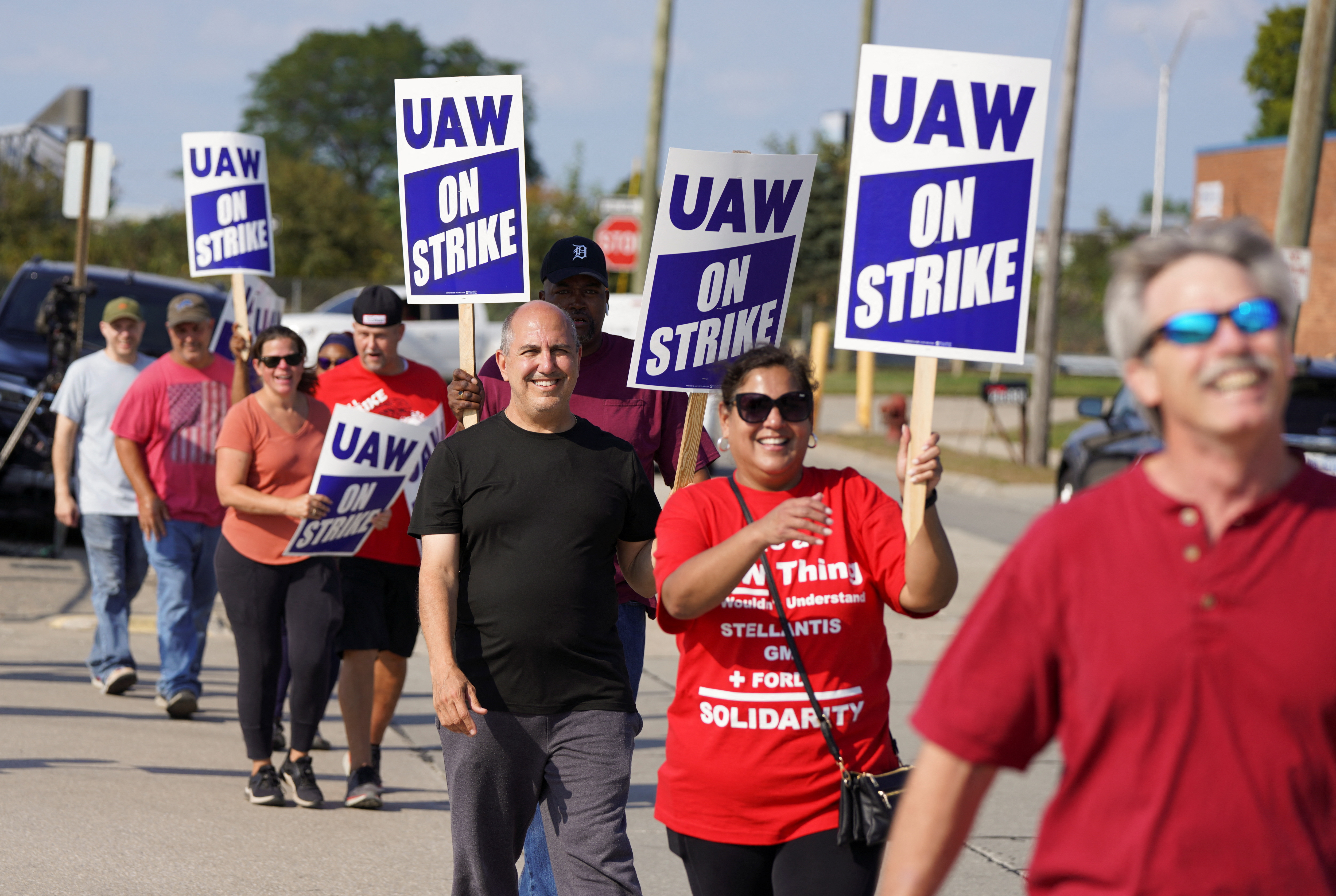
Striking UAW workers picket outside the Stellandis facility in Center Line, Michigan, U.S., on September 22, 2023. REUTERS/Dieu-Nalio Chery Get license rights
Sept 23 (Reuters) – U.S. auto workers extended a strike on Friday.
Selling and installing parts is one of the most profitable parts of the auto business, but also one of the most vulnerable because the industry relies on timely shipments. A suffocating parts supply strategy adds to the problems for some dealers, who already find it difficult to source certain components.
“It becomes almost impossible to get these parts,” said Richard Pasulo, a diagnostic technician from Wappinger, New York, who works for Cadillac owners and used car dealers. The broader strike, which targets 38 parts distribution centers owned by GM and Stellantis, says “these stores are going to tell their customers, ‘We don’t know when we’ll be able to fix your vehicle. It could be indefinitely.’
Selling repair parts and service revenue is key to many dealers’ profits, and provides gross profit margins of 40% or better for big auto retail chains such as AutoNation ( AN.N ) and Lithia ( LAD.N ).
“If your car doesn’t work, you’re stuck. It just makes sense, don’t you think?” Howard Drake, owner of a GM dealership based in California, describes the difficult situation of customers who need repairs. have,” he said.
Mike Stanton, president and CEO of the National Association of Auto Dealers, said: “Dealers do not want to see anything that limits our ability to serve customers, so we are confident that the automakers and the UAW can reach an agreement quickly and amicably.”
The UAW was expected to expand their strike by shutting down plants that make high-profit vehicles such as pickup trucks. But automakers have built up vehicle inventories and many dealers will soon face repair problems.
“It definitely affects customers,” said Thomas Morris, 60, who was on strike Friday at a General Motors parts distribution center in suburban Philadelphia.
The center serves GM dealerships from Pennsylvania to Maine, moving about 30,000 parts for vehicle repairs each day, workers said.
GM said in a statement that the company has “contingency plans for various scenarios,” while Stellandis said the UAW was awaiting a response to its “competitive offer” on Thursday and was looking forward to “production engagement.”
Arthur Wheaton, director of labor studies at Cornell’s School of Industrial and Labor Relations, said the UAW made a smart move.
“I think it’s a great strategy to go after distribution centers,” he added. Services are big business, he said. “That’s how they make a lot of money.”
Brad Sowers, CEO of Jim Butler Auto Group, which owns the largest Chevrolet dealership in St.Louis, Missouri, said he would be upset if a deal wasn’t made in 60 days, even with the foresight to load parts. Anticipating a strike.
“I want them to come together and do it,” he said.
Reporting by Abirub Roy in San Francisco and Toinsola Oladipo in New York and Jared Renshaw in Pennsylvania; Editing by Peter Henderson and Sri Navaratnam
Our Standards: Thomson Reuters Trust Principles.